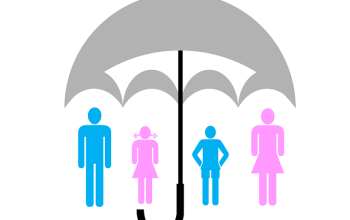General Liability Insurance serves as a foundational shield for businesses against claims of bodily injury, property damage, and personal and advertising injuries to third parties. Small business owners, in particular, benefit from this coverage to protect against common operational risks, including accidents on their premises or issues like privacy breaches and libel/slander. Beyond the basics, specialized insurance types are available: Professional Liability Insurance (Errors & Omissions Insurance) safeguards professionals against allegations of professional negligence; Product Liability Insurance protects against claims arising from product defects or malfunctions; and Public Liability Insurance covers activities in public spaces or events. For larger enterprises, Commercial Liability Insurance offers a broader scope of protection, often including additional coverages such as employment practices liability and cyber liability. Small Business Insurance is tailored to meet specific needs, ensuring appropriate coverage levels for distinct business activities. All these forms of Business Liability Coverage are critical for safeguarding against the financial impact of legal claims, making them indispensable components of a robust risk management strategy for small businesses and a well-rounded Small Business Insurance plan.
When the unexpected occurs and legal claims arise from incidents involving third parties, Third-Party Liability insurance stands as a financial safeguard. This critical insurance is pivotal for businesses and individuals alike, offering protection against potential financial burdens from lawsuits due to property damage or bodily injury caused to others. Whether you’re a shop owner, a professional providing services, or an individual involved in an auto accident where someone else is hurt, Third-Party Liability insurance can shield you from costly legal repercussions. This article delves into the various types of liability coverage available, including General Liability Insurance for everyday business risks, Professional Liability Insurance for service-related incidents, and Commercial Liability Insurance for comprehensive protection across all business operations. Additionally, it explores Public Liability Insurance, Product Liability Insurance, and how these can specifically benefit individuals and small business owners. Understanding the nuances of each policy type and selecting the right coverage is essential to ensure you are adequately protected in the event of a claim.
- Navigating Third-Party Liability Insurance: Understanding Your Protection Against Claims
- Tailoring Your Defense: Types of Third-Party Liability Insurance for Businesses and Individuals
- – General Liability Insurance: Safeguarding Against Day-to-Day Risks
Navigating Third-Party Liability Insurance: Understanding Your Protection Against Claims
navigating the complexities of Third-Party Liability Insurance is crucial for both individuals and businesses alike. General Liability Insurance serves as a foundational shield against claims arising from bodily injury, property damage, and personal and advertising injury caused to third parties. For small business owners, it’s imperative to understand that General Liability Insurance can mitigate the risks associated with daily operations. This includes everything from slip-and-fall accidents on your premises to unintentional libel, slander, or violation of someone’s right to privacy.
In addition to General Liability Insurance, there are specialized forms of Third-Party Liability coverage tailored for specific industries. For instance, Professional Liability Insurance, also known as Errors and Omissions (E&O) insurance, is vital for professionals who provide advice, services, or design. It protects against claims alleging negligence or misconduct in the performance of professional duties. Similarly, Product Liability Insurance ensures that businesses are safeguarded against claims related to product defects or malfunctions. Meanwhile, Public Liability Insurance covers activities undertaken in public spaces or events, where the risk of accidental harm to spectators or participants is higher.
For businesses operating at a larger scale, Commercial Liability Insurance encompasses broader protection than its small business counterpart. It often includes additional coverage options such as employment practices liability and cyber liability. Understanding the nuances between these types of Third-Party Liability Insurance policies is essential for tailoring coverage to your specific business needs. This ensures that you are adequately protected from financial losses due to legal claims, enabling you to operate with greater confidence and security in today’s litigious environment.
Tailoring Your Defense: Types of Third-Party Liability Insurance for Businesses and Individuals
When tailoring your defense against potential claims, it’s crucial for businesses to consider the array of third-party liability insurance options available. General Liability Insurance serves as a foundational shield by covering claims arising from bodily injury, property damage, and personal and advertising injury. For instance, if a customer slips and falls on your premises, this policy can help mitigate the financial impact of any legal action taken against your business. Additionally, Professional Liability Insurance, also known as Errors & Omissions (E&O) insurance, is tailored for businesses offering professional advice or services. It protects against claims alleging negligence or misrepresentation in the performance of professional duties.
Individuals, particularly small business owners, also benefit from a robust third-party liability coverage. Public Liability Insurance safeguards against claims resulting from accidents on rented or owned property, or from product-related incidents that cause harm to others. For businesses dealing with products, Product Liability Insurance is indispensable, offering protection for defects in your product that lead to injury or damage. Furthermore, Commercial Liability Insurance can be customized to address the unique risks of a given business, ensuring comprehensive coverage against a wide range of third-party claims. It’s essential for both businesses and individuals to evaluate their specific needs and select the appropriate type of third-party liability insurance to ensure they are adequately protected from unforeseen legal challenges.
– General Liability Insurance: Safeguarding Against Day-to-Day Risks
General Liability Insurance serves as a critical safeguard for businesses, offering protection against a wide array of risks encountered in the course of daily operations. This type of coverage is often referred to as ‘Commercial General Liability’ (CGL) insurance and is indispensable for small businesses, particularly those that interact closely with customers or operate in public spaces. It encompasses ‘Product Liability Insurance’, which shields against claims arising from products your business sells or manufactures. Accidental injury to third parties or damage to their property as a result of your business operations can lead to costly legal battles, but General Liability Insurance can help mitigate these financial risks by covering legal defense fees and potential settlement costs.
For professionals, ‘Professional Liability Insurance’ (Errors & Omissions Insurance) is tailored to cover claims related to professional services. This insurance is crucial for anyone providing advice, designs, or other expertise, as it protects against the financial consequences of alleged negligence, mistakes, or oversights in your work. Whether you run a consulting firm, offer design services, or manage a medical practice, this coverage ensures that unexpected legal actions do not jeopardize your business’s stability or your personal assets. Additionally, ‘Public Liability Insurance’ covers businesses when they are on premises open to the public, offering peace of mind for event organizers, retail stores, and service providers alike. Together, these Business Liability Coverages form a comprehensive shield against the unpredictable nature of day-to-day operations, safeguarding your enterprise from potential financial ruin due to liability claims.
In conclusion, Third-Party Liability insurance serves as a critical shield for both individuals and businesses alike. By understanding the nuances of General Liability Insurance, Professional Liability Insurance, Business Liability Coverage, Public Liability Insurance, Small Business Insurance, Product Liability Insurance, and Commercial Liability Insurance, one can tailor their coverage to mitigate risks associated with unforeseen incidents. Whether operating a business or navigating personal responsibilities, having robust liability protection is not just an asset; it’s a necessity in today’s litigious environment. Ensuring adequate coverage can safeguard your assets and provide peace of mind, knowing that you are prepared should a third party make a claim against you for damages or injuries. Thus, incorporating these essential types of insurance into your risk management strategy is prudent for any individual or business aiming to secure their operations and financial well-being.



